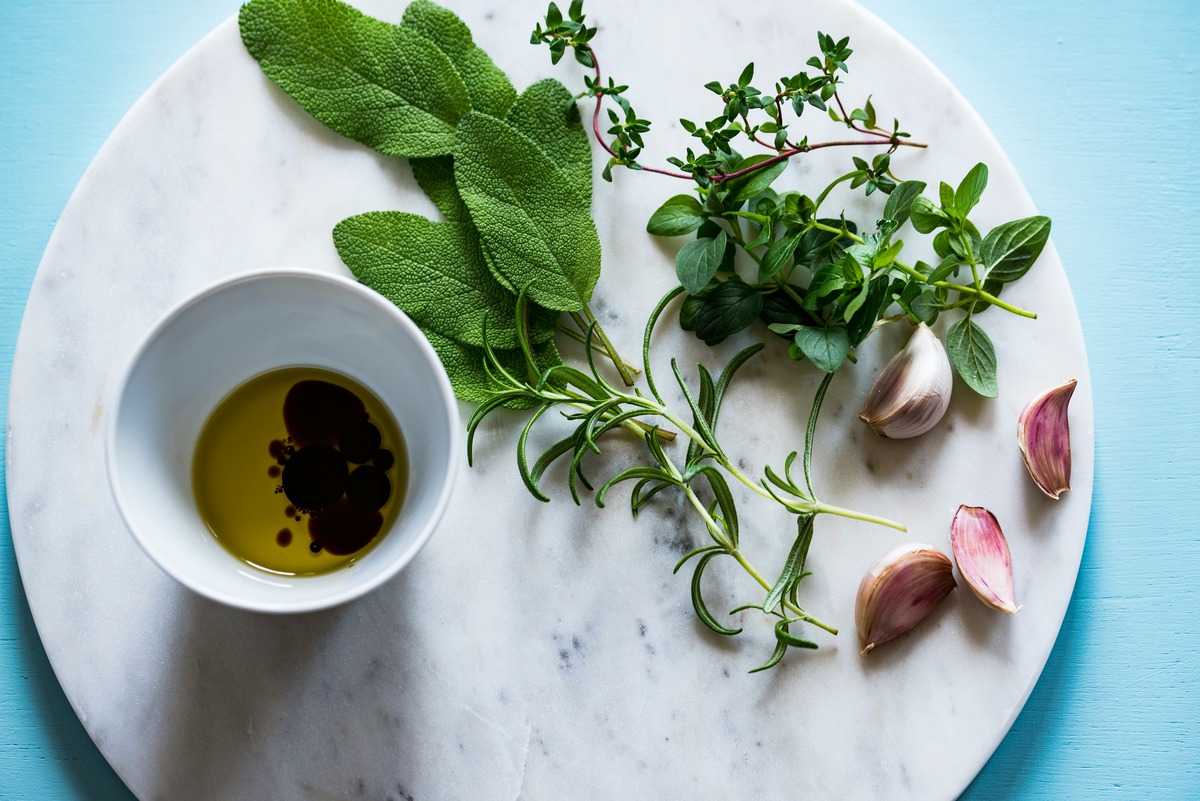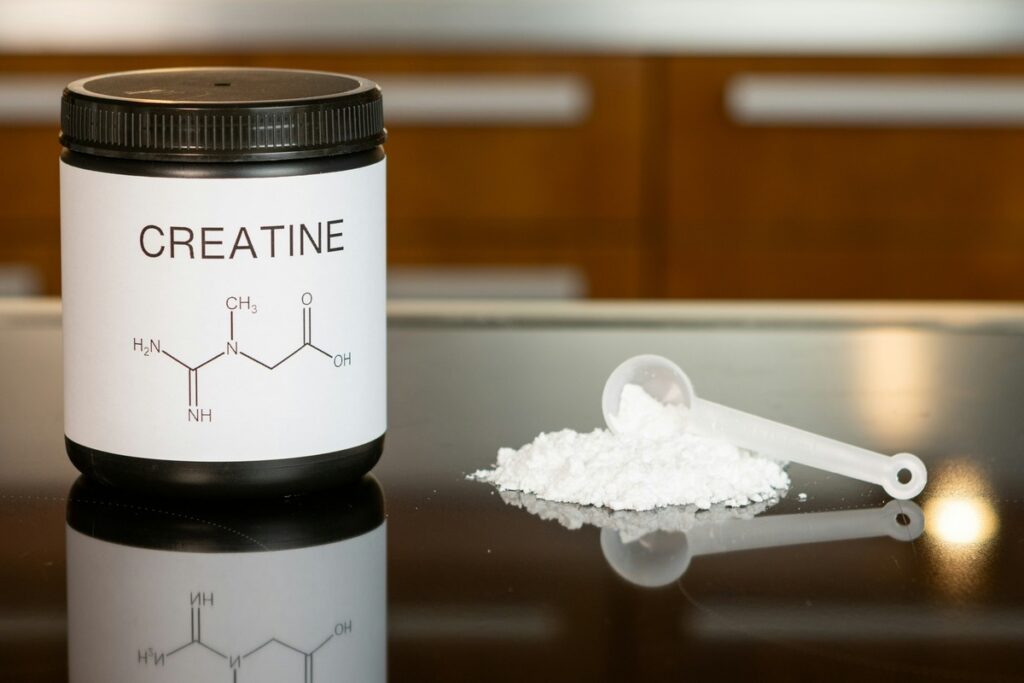
Boost Longevity: Why Olive Oil is the Best Choice for Cooking
Have you ever noticed how many different oils we use in our foods? When you go to the grocery store or read a nutrition label, you’ll see a variety of oils like canola, soybean, sunflower, and coconut. However, when it comes to your health and longevity, there’s really only one oil you should be focused on: olive oil, especially extra virgin olive oil.
Most other oils are highly processed seed oils that can cause inflammation, which is detrimental to our health. Growing up, my parents did their best to provide for me, but they were always penny-pinching at the grocery store. For example, I have a funny yet troubling memory of my mom stocking up on whatever oil was on sale that week. Consequently, our pantry was a rotating cast of cheap oils, and we ended up with some pretty questionable choices that, looking back, were not good for anyone. The irony was, despite saving a few bucks on groceries, those oils were probably costing us more in terms of health.
For the past couple of years, I’ve made a conscious effort to use only olive oil in my cooking. While it may be more expensive, it’s 100% worth it for your health and quality of life in the long run.
So, what makes olive oil so special and beneficial to our health? Today, we’re going to dive into the research and provide some easy suggestions on how you can incorporate it into your everyday life in the kitchen.
The Health and Longevity Benefits of Cooking with Olive Oil
Olive oil, particularly extra virgin(EVOO), is a staple of the Mediterranean diet and has garnered significant attention for its myriad health benefits. This blog post delves into the extensive research supporting the positive impact of olive oil on health and longevity, highlighting key studies that underline its benefits.
Cardiovascular Health
Olive oil’s role in promoting cardiovascular health is well-documented. Its high content of monounsaturated fatty acids (MUFA) and polyphenols contribute to its anti-inflammatory and antioxidant properties, which are crucial for heart health.
Key Studies:
- Covas (2007): This study reviews the wide range of anti-atherogenic effects associated with olive oil consumption. It highlights how olive oil improves lipid profiles, endothelial function, and reduces oxidative stress and inflammation, thereby lowering the risk of cardiovascular disease (Covas, 2007).
- Covas et al. (2006): In this randomized, crossover, controlled clinical trial, the researchers found that EVOO with higher polyphenol content increased HDL cholesterol levels and decreased markers of oxidation in healthy young men. This underscores the greater health benefits of virgin olive oil compared to refined olive oil (Covas et al., 2006).
Cancer Prevention
Olive oil’s potential in cancer prevention, particularly in breast and digestive tract cancers, has been another area of extensive research. The phenolic compounds in it, known for their antioxidant properties, play a crucial role in protecting against cancer.
Key Studies:
- Owen et al. (2000): This study presents evidence that the phenolic fraction of olive oil, along with high intakes of squalene and oleic acid, contributes to its health-promoting properties. These compounds provide considerable protection against colon, breast, and skin cancers by inhibiting oxidative stress (Owen et al., 2000).
- Buckland & González (2015): The researchers found that regular consumption of olive oil is associated with increased longevity and a reduced risk of chronic diseases, including certain cancers. The study emphasizes olive oil’s cardio-protective role and its potential in preventing various cancers (Buckland & González, 2015).
Longevity and Overall Mortality
The Mediterranean diet, which emphasizes olive oil as the primary fat source, is associated with increased longevity and reduced overall mortality. This is attributed to the combined effects of olive oil’s MUFA and polyphenols, which contribute to better cardiovascular health and reduced inflammation.
Key Studies:
- Trichopoulou & Dilis (2007): This review points to ecological and analytic epidemiological studies that assess olive oil in relation to major common diseases and overall mortality. It concludes that olive oil’s microcomponents, with their antioxidant potential, play a significant role in promoting longevity (Trichopoulou & Dilis, 2007).
- Perez-Jimenez et al. (2005): The study highlights the benefits of a Mediterranean diet rich in virgin olive oil. It shows that such a diet improves major risk factors for cardiovascular disease and suggests that the dietetic benefits of virgin olive oil intake should start early in life and be maintained throughout (Perez-Jimenez et al., 2005).
Anti-inflammatory and Antioxidant Effects
Olive oil is rich in phenolic compounds like oleuropein, hydroxytyrosol, and oleocanthal, which exhibit strong antioxidant and anti-inflammatory effects. These properties help reduce inflammation and oxidative damage, key factors in the development of chronic diseases.
Key Studies:
- Gavahian et al. (2019): This review discusses the health benefits of olive oil, including its positive effects on gut microbiota, antioxidant activity, and its ability to prevent cardiovascular diseases. The study emphasizes the role of phenolic compounds in these health benefits (Gavahian et al., 2019).
- Isaakidis et al. (2023): The researchers provide recent clinical evidence supporting the positive impact of olive oil on human health, particularly its antioxidant and anti-inflammatory effects. They highlight the benefits of olive oil in preventing and managing various non-communicable diseases (Isaakidis et al., 2023).
Metabolic Health
Regular consumption of olive oil is linked to improved metabolic health, including better glucose metabolism and reduced risk of type 2 diabetes. Olive oil’s MUFA and polyphenols help regulate blood sugar levels and improve insulin sensitivity.
Key Studies:
- Buckland & González (2015): This review highlights that regular consumption of olive oil is associated with increased longevity and a reduced risk of chronic diseases, including diabetes and metabolic syndrome. The study emphasizes olive oil’s role in improving metabolic health (Buckland & González, 2015).
- Foscolou et al. (2018): This narrative review consolidates evidence from meta-analyses, suggesting that olive oil consumption is beneficial for preventing cardiovascular diseases, type 2 diabetes, and certain cancers. The study underscores the importance of olive oil in improving metabolic health (Foscolou et al., 2018).
How to Incorporate It into Your Everyday Life
Incorporating olive oil into your daily cooking is easier than you might think. Here are some simple suggestions:
First, use extra virgin olive oil as the base for homemade salad dressings. Mix it with balsamic vinegar, lemon juice, or your favorite herbs for a delicious and healthy dressing.
Next, replace butter or other cooking oils with olive oil when sautéing vegetables, meats, or seafood. It adds a rich flavor and enhances the nutritional value of your meals.
Additionally, use it in place of butter or margarine in baking recipes. It works well in cakes, muffins, and even cookies, providing a moist texture and subtle flavor.
Moreover, drizzle extra virgin olive oil over finished dishes like pasta, roasted vegetables, or grilled meats for an extra burst of flavor and health benefits.
Finally, create a simple and healthy appetizer by serving crusty bread with a dish of extra virgin olive oil and a sprinkle of sea salt or herbs.
Conclusion
In conclusion, cooking with olive oil offers significant health benefits, including improved cardiovascular health, reduced cancer risk, increased longevity, and better metabolic health. The presence of MUFA and polyphenols in olive oil plays a crucial role in these health-promoting effects.
References
- Covas, M. I. (2007). Olive oil and the cardiovascular system. Pharmacological Research, 55(3), 175-186.
- Covas, M. I., Nyyssnen, K., Poulsen, H. E., Kaikkonen, J., Zunft, H. J., Kiesewetter, H., … & Marrugat, J. (2006). The effect of polyphenols in olive oil on heart disease risk factors: A randomized trial. Annals of Internal Medicine, 145(5), 333-341.
- Owen, R. W., Giacosa, A., Hull, W. E., Haubner, R., Würtele, G., Spiegelhalder, B., & Bartsch, H. (2000). Olive-oil consumption and health: The possible role of antioxidants. The Lancet Oncology, 1(2), 107-112.
- Buckland, G., & González, C. A. (2015). The role of olive oil in disease prevention: A focus on the recent epidemiological evidence from cohort studies and dietary intervention trials. British Journal of Nutrition, 113(S2), S94-S101.
- Trichopoulou, A., & Dilis, V. (2007). Olive oil and longevity. Molecular Nutrition & Food Research, 51(10), 1275-1278.
- Perez-Jimenez, F., Álvarez de Cienfuegos, G., Badimón, L., Barja, G., Battino, M., Blanco, Á., … & Visioli, F. (2005). International conference on the healthy effect of virgin olive oil. European Journal of Clinical Investigation, 35(7), 421-424.
- Gavahian, M., Mousavi Khaneghah, A., Lorenzo, J. M., Munekata, P. E., García-Mantrana, I., Collado, M. C., … & Barba, F. J. (2019). Health benefits of olive oil and its components: Impacts on gut microbiota, antioxidant activities, and prevention of noncommunicable diseases. Trends in Food Science & Technology, 88, 220-227.
- Isaakidis, A., El Maghariki, J., Carvalho-Barros, S., Gomes, A., & Correia, M. (2023). Is there more to olive oil than healthy lipids? Nutrients, 15(16), 3625.



